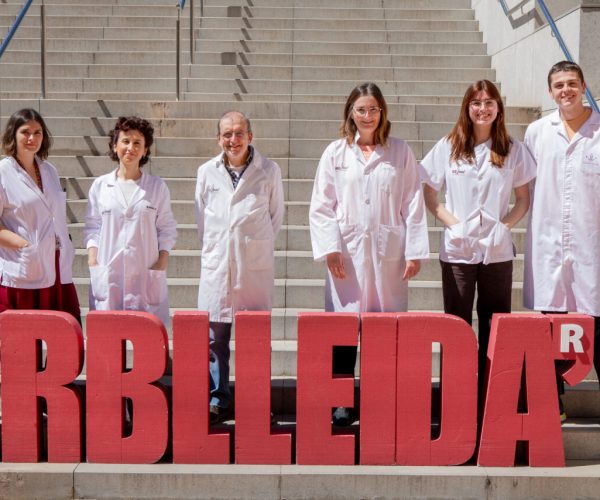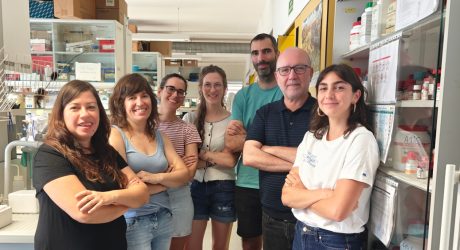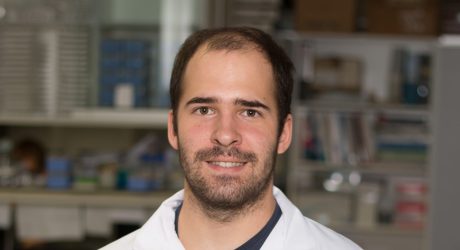Interaction between the microbiota and the immune system influences the development of type 1 diabetes
These are the results of a study published in Nature Communications and led by the the University of Lleida (UdL), the Biomedical Research Institute of Lleida (IRBLleida) and the Vall d’Hebron Research Institute (VHIR)
Type 1 diabetes is an autoimmune disease in which the immune system of patients attacks the pancreatic cells responsible for insulin production. A study from the University of Lleida (UdL) the Biomedical Research Institute of Lleida (IRBLleida) and the Vall d’Hebron Research Institute (VHIR), recently published in Nature Communications, has studied why the immune system is activated in experimental models of type 1 diabetes. The results show that if there are modifications in the intestinal microbiota, i.e. the microorganisms of the intestine, there are changes in the immune system, and vice versa, and this has an impact on the risk of developing this disease. This discovery may lead to the establishment of new therapies for type 1 diabetes based on modulating the microbiota.
The teams studied two animal models with a genetically different risk of having type 1 diabetes: one with an increased risk of having the disease, while the other was more resistant. The researchers observed that there were differences in the microorganisms that comprise the microbiota in the two types of animals. “While there are bacteria that are more common in diabetics, such as cyanobacteria or clostridium, there are others, such as bifidobacteria, that are more frequent in resistant animals”, says Dr. Chaysavanh Manichanh, head of the Microbiome Research group at VHIR.
Among the findings is that if the two models share living space for weeks or months, there are changes in the immune system and microbiota, and even the risk of developing diabetes is reduced. “We have seen that, when animals that are initially at higher risk of diabetes live in the same space as resistant animals, the incidence of the disease is reduced by half. In fact, we see that the immune response turns from being very strong and inflammatory (typical of type 1 diabetes), to being much more regulatory”, explains Dr. Joan Verdaguer, head of the Immunology and Metabolism Research group at the UdL and IRBLleida.
Changes are also observed in the microbiota. As Dr. Manichanh points out, “the microorganisms found in the intestine vary when animals live together, which is a sign of the mutual modulation between the microbiota and the immune system”. The researchers point out that the exchange of bacteria is possible because the animals practice coprophagy, i.e., fecal ingestion.
In subsequent analyses, it was also confirmed that, if the immune system of the animals is eliminated, a large part of the diversity of gut microorganisms is lost. This confirms that the regulation between microbiota and the immune system is bidirectional, i.e. the immune system also influences the growth of microorganisms.
Damage to intestinal tissue intensifies the immune system’s reaction to microbiota
To understand the mechanism of the relationship between gut microorganisms and the immune system, researchers have studied intestinal permeability, i.e. how preserved or damaged the gut tissue is. In this sense, it has been observed that animals with a higher risk of diabetes have a more permeable intestine, i.e. the tissue is more damaged.
In line with previous results, this permeability is shown to be lower in animals at higher risk of type 1 diabetes living with genetically resistant animals. “If there is less permeability, it means that the tissue is more preserved and prevents bacteria from contacting the immune system. If there is less contact, the immune system is less activated and, therefore, the risk of diabetes is reduced”, says Estela Rosell, researcher at the Immunology and Metabolism Research group at the UdL and IRBLleida and first author of the article.
Future therapeutic options for patients with type 1 diabetes
This research is considered one of the most relevant in the field of the study of the microbiota and type 1 diabetes since, until now, the vast majority of studies have focused on the study of type 2 diabetes. If the relationship between the microbiota and the immune system is also confirmed in humans, the results open the door to new personalized therapies based on the microbiota for type 1 diabetes and even for other autoimmune diseases. “In the next steps, we will have to confirm that the administration of bacteria associated with resistance to type 1 diabetes can reduce the incidence of this disease in patients”, conclude the authors of the study.
The study is funded by the DiabetesCERO Foundation and the National R&D&I Plan of the Ministry of Science and Innovation.
Article: Rosell-Mases, E., Santiago, A., Corral-Pujol, M. et al. Mutual modulation of gut microbiota and the immune system in type 1 diabetes models. Nat Commun 14, 7770 (2023). https://doi.org/10.1038/s41467-023-43652-x




